It’s a bit of an understatement to say that life as a new mum is filled with change — your moods can fluctuate, your sleep patterns will likely be erratic, and your routine will be unrecognisable from your pre-pregnancy life.
But there are also a lot of changes going on inside your body.
The human body is filled with over 50 different hormones, and they play an essential role in factors such as growth, metabolism, and sexual function. For women who’ve gone through pregnancy, they’re also vital in helping the body adjust to motherhood.
Hormones such as oestrogen and progesterone do an important job during and after childbirth, but the varying needs of your body mean they change dramatically during the postpartum period — affecting (among other things) your mood, sleep, and energy levels.
So, what is actually going on with your hormones after pregnancy? When do they spike and dip? And when will they go back to “normal”? Our guide covers everything you need to know about postpartum hormone changes.
What happens to your hormones after giving birth?
Just like many other aspects of your life, your hormones are in a state of flux as you recover from childbirth and begin adapting to your new role. These hormonal shifts can be challenging, but they’re also playing a vital part in everything from your body’s physical recovery process to your ability to bond with your new baby.
Oestrogen and progesterone decrease
Oestrogen and progesteroneare sex hormones that play an important role in reproductive health. During pregnancy, oestrogen promotes the growth of the uterus and supports the ongoing development of the foetus, while progesterone thickens the uterus lining and helps to prevent preterm labour.
Because of these essential functions, oestrogen and progesterone levels increase during pregnancy, but drop rapidly following childbirth. This sharp decrease is mainly due to the fact oestrogen and progesterone are produced in the placenta, which leaves your body when you give birth.
The decline in oestrogen and progesterone can cause dramatic mood changes in the early days following childbirth, and is thought to be at least partly responsible for the phenomenon known as the “baby blues” — a feeling of sadness which is especially common in the first 2-3 days, but can last up to two weeks.
Prolactin increases
Prolactin is the hormone responsible for lactation. Produced by the pituitary gland — a tiny gland at the base of the brain — it promotes the growth of breast tissue (specifically the type known as mammary alveoli) and stimulates the cells that help to produce milk for breastfeeding.
Because it’s so essential for milk production, prolactin spikes dramatically following childbirth, and remains high during breastfeeding — the more frequently you nurse, the higher your prolactin levels will be. If you choose not to breastfeed, however, your prolactin levels will go back to normal within around two weeks.
Oxytocin remains high
Nicknamed the “love hormone”, oxytocin is quite unique in that it increases during pregnancy and stays high following childbirth. This hormone performs various functions throughout the pregnancy and postpartum periods, impacting everything from labour to postpartum recovery and even mum-baby bonding.
Before birth, for example, oxytocin stimulates uterine contractions to help the cervix dilate and induce labour — oxytocin levels increase as labour progresses.
Postpartum, oxytocin continues to perform a number of important functions, such as helping the uterus return to its pre-pregnancy size and preventing excessive postpartum bleeding. It also triggers the let-down reflex to enable breastfeeding, regulates mood, and helps to strengthen the emotional attachment between mother and baby.
Cortisol decreases
Cortisol is often referred to as the “stress hormone”. Produced by the adrenal glands, cortisol performs several functions in the body, including maintaining healthy blood pressure, regulating metabolism, and (here’s where the nickname comes from) helping the body respond to stress.
Cortisol levels gradually rise during pregnancy (reaching their peak in the latter stages) as the hormone plays a significant role in developing the foetus, modulating the immune response, managing energy levels, and latterly helping both mum and baby prepare for birth.
Following pregnancy, cortisol levels decrease quite dramatically as the body shifts from its ‘high-energy’ pregnancy state to one focused on healing and recovery. Metabolic processes also return to their pre-pregnancy levels. This reduction in cortisol can lead to postpartum mood changes, and in some cases may even contribute to postpartum depression.
Endorphins decrease
Endorphins are neurotransmitters produced by the brain, often referred to as the body’s “natural painkillers”. They typically spike in pregnant women to help them cope with the physical pain and discomfort of pregnancy (particularly during labour) while they can also contribute to the feeling of euphoria after giving birth.
During the postpartum period, however, endorphin levels usually fall. In combination with the drop in other hormones such as oestrogen, progesterone and cortisol, this can contribute to mood swings, irritability, and “baby blues”. New mums recovering from birth may also be more sensitive to pain as endorphins return to their pre-pregnancy levels.
How do hormonal changes affect you after birth?
The changes in hormones such as oestrogen, progesterone and cortisol that occur following pregnancy can have dramatic physical and emotional effects — impacting everything from your energy levels to your mood. While the postpartum experience can be different for every woman, hormonal shifts are likely to affect you in the following ways:
Mood changes. The drop in hormones such as oestrogen and cortisol is associated with postpartum mood swings, with new mums often experiencing complex and changeable emotions.
Baby blues. These reductions can also contribute to the “baby blues”, which is very common in the first few days following birth, and in rarer cases can lead to postpartum depression.
Fatigue. Decreased levels of hormones like cortisol can contribute to feelings of exhaustion and a lack of energy.
Stress and anxiety. Lower cortisol levels can sometimes make it harder to manage stress, which may lead to bouts of anxiety and irritability.
Difficulty sleeping. The reduction in oestrogen (which reduces the amount of time it takes to fall asleep) and progesterone (which helps with relaxation) can often introduce sleep-related challenges including insomnia and frequent waking.
However, while navigating these postpartum hormone changes can certainly be challenging, it’s not all mood swings and sleepless nights. There are some upsides too, with hormones such as oxytocin aiding physical recovery (helping the uterus to contract after birth and reducing postpartum bleeding) while also supporting mother-baby bonding.
How long do postpartum hormones last?
Postpartum hormone fluctuations typically last from a few weeks to several months after giving birth. The most significant changes — such as the rapid drop in oestrogen and progesterone — occur within the first few days, while other hormones such as prolactin and oxytocin remain elevated for longer, especially in breastfeeding mothers.
While symptoms such as mood swings generally improve after a few weeks, some women may continue experiencing hormonal effects for several months. In cases of postpartum depression, these effects can persist longer and may require medical intervention.
When do hormones drop postpartum?
Most hormones begin to drop almost immediately after giving birth. For example, oestrogen and progesterone levels decrease within 24 hours (mainly because the placenta, where these two hormones are produced, is expelled during delivery) and return to pre-pregnancy levels within a few days.
Other hormones take longer to decline. Oxytocin, for instance, increases during pregnancy and remains high for a while after birth (it may begin to decrease up to 8 weeks postpartum, though this can vary) as it continues to play an important role in factors like postpartum recovery, breastfeeding, and mum-baby bonding.
When do your hormones level out postpartum?
Your hormones will usually go back to their normal, pre-pregnancy levels between three to six months after giving birth, but this can vary between women. Factors such as stress, sleep deprivation, and whether you decide to breastfeed can all affect how long it takes for your hormones to level out.
For example, breastfeeding mothers continue to produce higher levels of prolactin and oxytocin (both of which play an important role in milk production and let-down) and this means it can often take longer for ‘hormonal balance’ to be fully restored.
Postpartum hormones timeline: what happens when?
Postpartum hormone changes rarely happen like clockwork (there aren’t many things you can set your watch to when it comes to motherhood) and the timeframe often depends on whether you decide to breastfeed or not, but let’s attempt to at least give you a rough idea of what your postpartum hormone timeline will look like.
First week postpartum hormones
Many hormones surge during labour and childbirth (your endorphins spike and often give you a sense of euphoria, for example) and while some remain high, most will dramatically decrease in the days following delivery. For example:
Oestrogen and progesterone levels will fall rapidly (usually within 24 hours) and return to their pre-pregnancy norm shortly after. This is often accompanied by the “baby blues”, which typically only last a few days.
Prolactin will increase dramatically in the first few days to help stimulate milk production (if you choose not to breastfeed, your prolactin levels will return to normal in a couple of weeks).
Oxytocin will remain high in the early days following childbirth, helping to counteract the drop in oestrogen and progesterone and help with bonding between mum and baby.
3-6 weeks postpartum hormones
Any initial “baby blues” should have subsided by this stage, but for the roughly 1 in 7 new mums who develop postpartum depression, they’ll usually start to experience symptoms — which can include a very low mood, irrational thoughts, and trouble bonding with your baby — within a few weeks of giving birth. Additionally:
Oestrogen and progesterone will have returned to their pre-pregnancy levels.
Prolactin will remain high for breastfeeding mothers, to support ongoing milk production.
Oxytocin will also remain high for nursing mums, but may begin to drop from around 8 weeks.
3 months postpartum hormones
At this stage, particularly for non-breastfeeding mothers, many hormones will have begun returning to their baseline, pre-pregnancy levels — this is typically also when periods return for those who choose not to nurse.
However, hormones such as cortisol (the “stress hormone”) can spike around this time as the stresses of parenting often begin to take their toll.
6 months postpartum hormones
Many new mums find their hormones have ‘levelled out’ and returned to their pre-pregnancy state by the 6-month mark. However, this is often dependent on whether they’re breastfeeding, as prolactin and oxytocin levels remain high in breastfeeding mothers.
When you begin weaning your baby off breast milk (the World Health Organization recommends not doing so before six months), your prolactin and oxytocin levels will decrease and gradually return to normal. In addition, your menstrual cycle will likely recommence.
How to cope with postpartum hormone changes
The postpartum period can be challenging, with hormonal imbalances often having a dramatic impact on factors such as your mood, your sleep quality, and your energy levels. But while hormonal changes and their aftereffects are pretty unavoidable, there are some things you can do to make this transitionary period at least a little more manageable.
Prioritise sleep and rest. Though getting enough of it can be easier said than done, sleep plays a vital role in hormone regulation. Even if it’s impossible to sleep for long stretches, try to catch up on sleep when your baby naps, for example.
Try to maintain a healthy diet. While you might have little time for meal prep, good nutrition is important for recovery and mood regulation. Where you can, try to opt for foods rich in protein, fibre, and healthy fats. And stay hydrated.
Do some light exercise. Low-intensity activities like walking, stretching, or yoga can make a big difference to your mood and energy levels, but it’s essential to listen to your body and take it slow — there’s no rush to jump back into a fitness routine.
Make time for self-care. Taking time for yourself doesn’t require a spa day, but it’s really important for your emotional and physical wellbeing. Try to set aside some time each day to take a bath, read a book, or just do something calming that you enjoy.
Ground your expectations. It’s normal to feel pressure to “bounce back” quickly after childbirth, but adjusting to life with a newborn is a process and it’s okay not to be perfect. Try to set realistic expectations for yourself and celebrate every small win.
Don’t be afraid to ask for help. Hormonal shifts can sometimes lead to feelings of isolation or guilt, so it’s important to lean on your partner, family, or friends. Remember, they may not recognise what you’re going through unless you tell them.
Speak to a professional. If you’re really struggling, or if you’re experiencing severe postpartum depression, you should seek professional help; for example, from your OB-GYN midwife or a mental health professional who specialises in postpartum care.
Adapting to postpartum hormone changes can be something of a rollercoaster ride — you know there’ll be ups and downs, but they can still catch you off guard. And while there are times when the ride will feel exhilarating, at others it might feel overwhelming.
But it’s important to remember that while the sometimes unpredictable nature of your postpartum hormones can be challenging, many of the changes you’re experiencing are your body’s way of helping you adapt to motherhood — and you’ll eventually find your balance again.


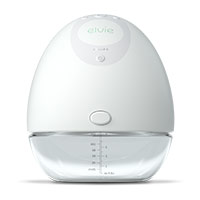

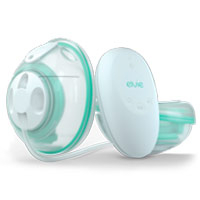


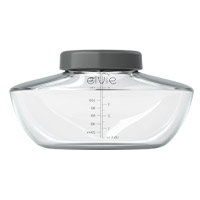
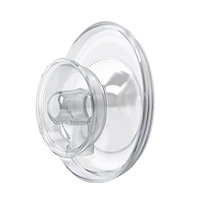

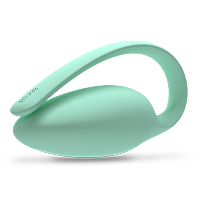
 12 minute read
12 minute read